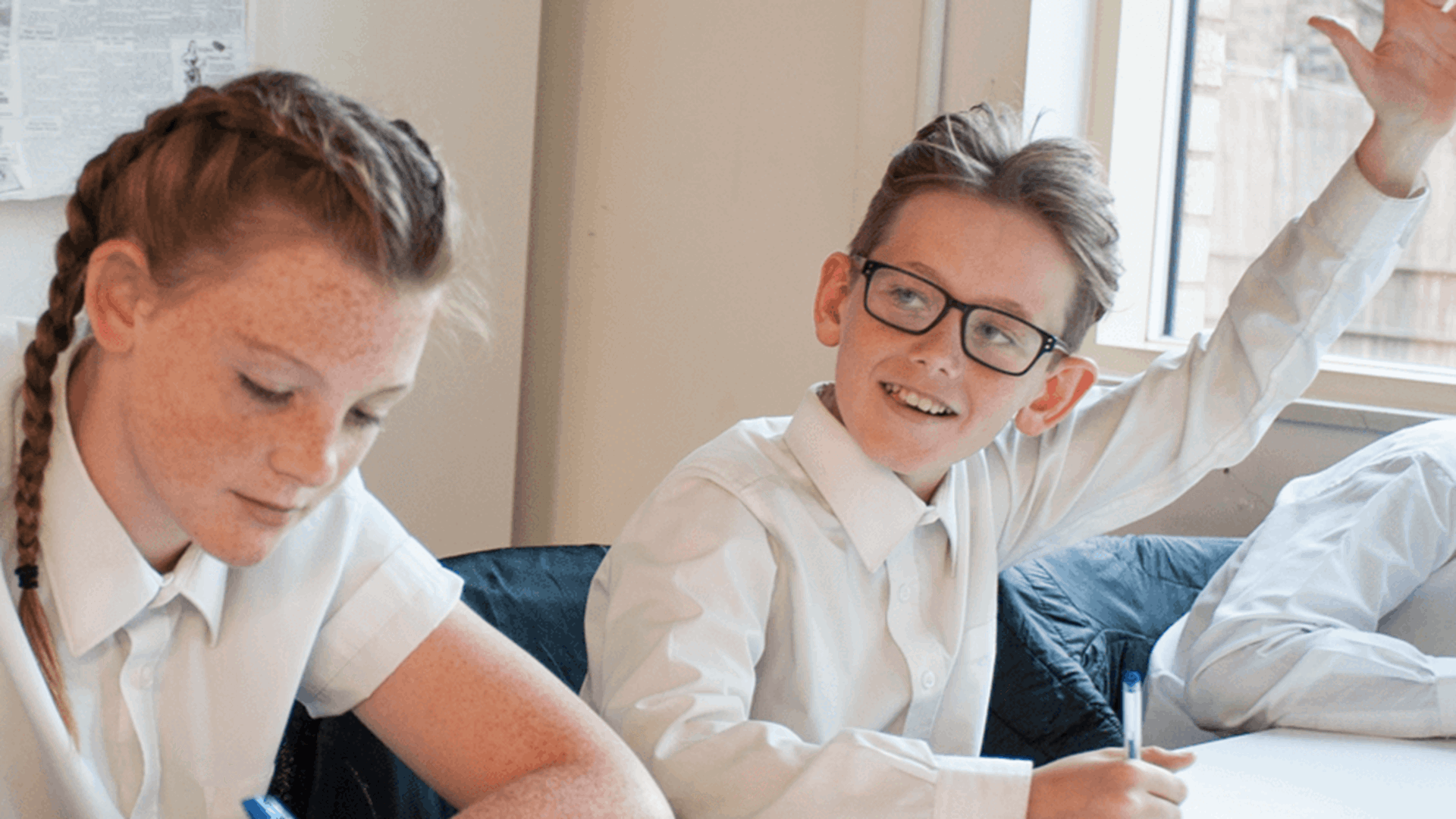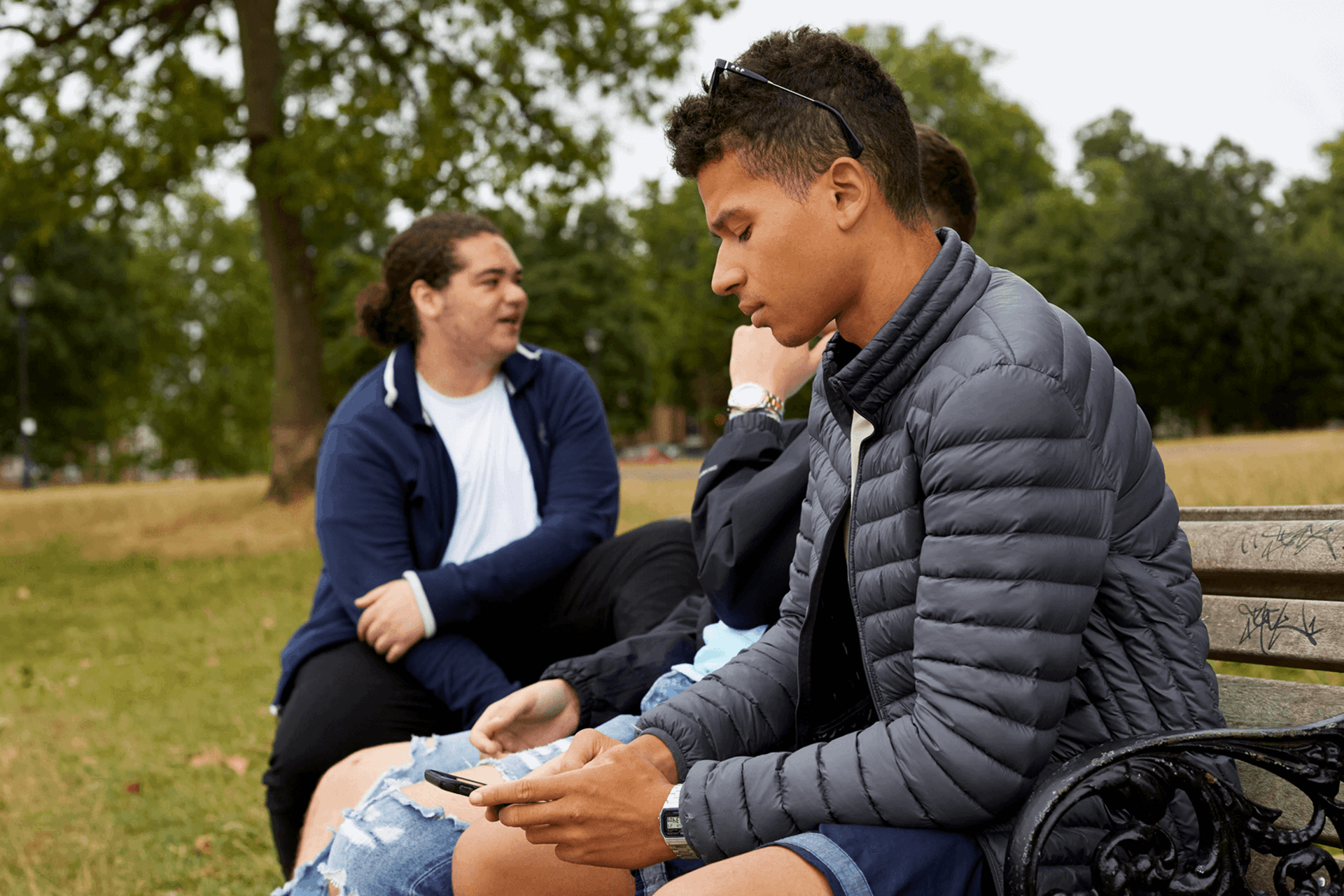Topics mentioned: transitions, anxiety, school refusal
Talk about starting secondary school with your child
Moving from primary to secondary school is exciting – a rite of passage. But it can also be a daunting or anxious time. For children with special educational needs and disabilities (SEND) or mental health difficulties, the change may be particularly challenging.
As a parent there is much you can do to help your child manage the transition and minimise anxiety, whatever their situation.
Chat about how they are feeling and how it will be different from primary – for instance bigger site, new people, changing teachers and rooms for subjects, more homework.
Reassure them that nerves about starting something new are normal, as is some sadness at leaving familiar things, and that these feelings usually subside.
But be careful not to impose your own worries. Focus on exciting opportunities too – new subjects, activities and friends. Celebrating the milestone of finishing primary school, and all the ways they have grown, can boost self-esteem and confidence.
Here, some parents suggest ways to talk about school transition:
Familiarise your child with their new school
Most secondary schools organise Year 6 transition days. These are a great opportunity to meet teachers, other starters and find out about the school layout and day. If possible print a school map to look at with your child too. Minimising unknowns for day one can reduce anxiety.
Schools often provide extra familiarisation days for vulnerable children – a chance to meet the SENCO and support staff and look around in a quieter environment.
Some parents share tips on helping a child get to know their new school:
Ensure key information is shared with the secondary school
This is really important for children with SEND or anxiety. Check your primary has shared paperwork and spoken with the new school, so they are aware of your child’s needs. You can also request a meeting with secondary staff yourself, to discuss support, particularly if your child has an education, health and care (EHC) plan. Familiarise yourself with the school’s SEN policy (on the website) too.
Prepare in advance
Try to get organised over the summer rather than leaving it to the last minute, which can be stressful for parent and child. A trip to buy uniform, get a haircut or choose new stationery is an opportunity to spend time together, chat and boost confidence too.
Secondary students often travel independently for the first time. Do some trial runs – with you, then perhaps solo or with a friend. Work out the first day plan. Your child may prefer to go with you to start, or to meet a friend on the way.
Help develop independence and organisation
Secondary school demands are greater, so preparation should help build their own skills and confidence. This will help them settle quicker. Don’t do it all for them. Could they arrange to meet friends, do shopping errands (good lunchtime practice) or organise their bag for a day out? Be guided by what feels manageable for your child though. It’s fine if they need more support than some others.
Once school starts, try developing independent organisation with post-it notes listing what’s needed each day; boxes to store other books and worksheets; and an evening habit of checking their school planner and preparing uniform and bag.
Students’ major concerns are getting lost or told off for being late. We expect that in the first few weeks. All staff will be looking out for the Year 7s. Reassure them it’s not a problem.
Give it time – and keep some reassuring routines
Trusted old friends and habits are comforting, particularly in the exhausting early weeks, if a child doesn’t know anyone, or if they are finding it hard to settle. Seeing primary classmates or enjoying familiar activities may be a welcome relief from the effort of starting a new school.
Too much change at once can feel overwhelming too. So while it’s great if they throw themselves into everything, don’t worry if they don’t. They need to adjust and relax. So resist the urge to quiz them too heavily as well.
My son went to a different school to his friends and was quite lonely and anxious. Favourite meals, football, old friends, some slack on chores and reassurance helped. It took a year for him to settle but he’s very happy now.
Finally, give it time. Settling in may take longer than you expected and it may not be a linear process, particularly for children with additional needs. If you are concerned it is a good idea to check in with your child’s form tutor or SENCO.
Where to get help
-
Independent Provider of Special Education Advice (IPSEA)
Provides legally based advice and support to help families get the right education for children and young people with special educational needs and disabilities (SEND).
Alongside calling their Helpline, you can also book an appointment with their Advice Line or Tribunal Helpline.
- Opening times:
- Tuesday - Thursday, 9.30am - 2.30pm
Spread the word





